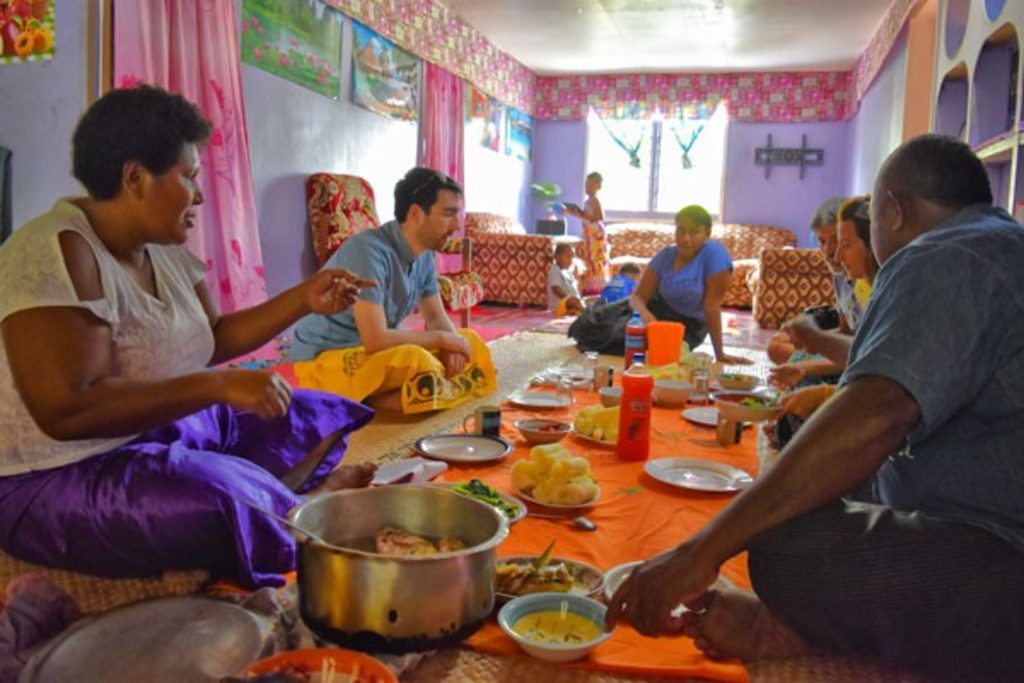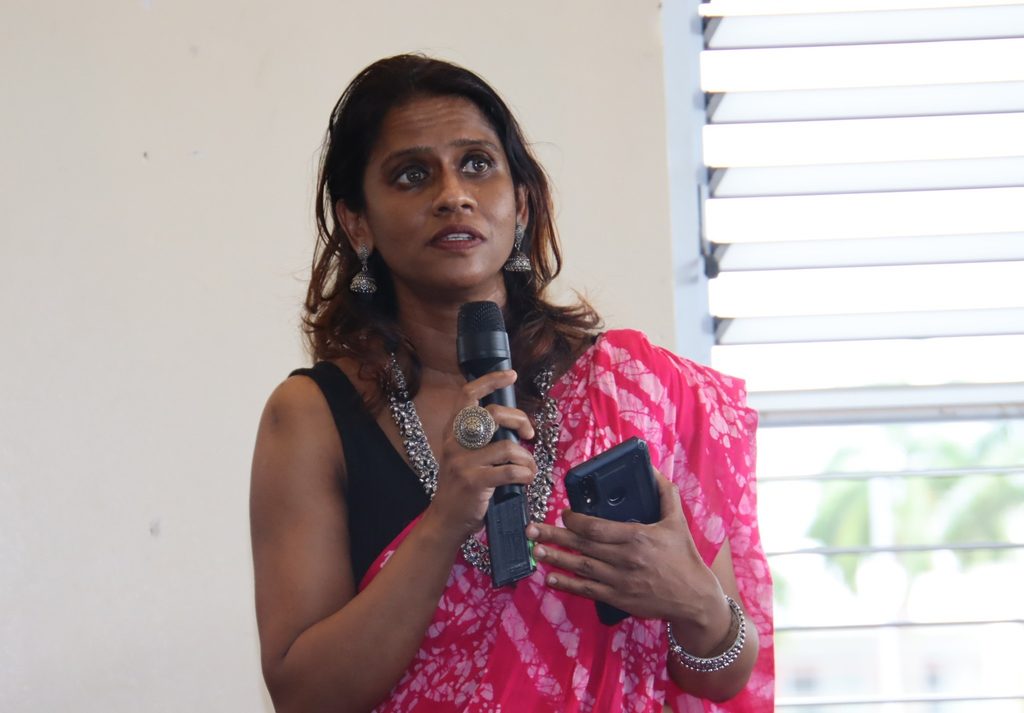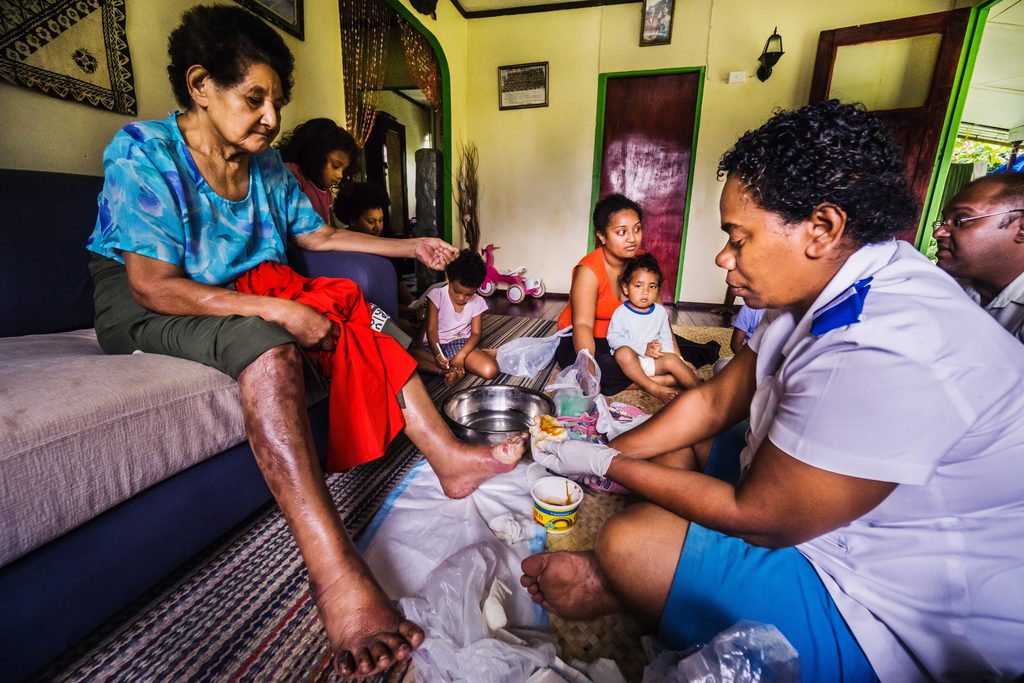After over 70 years of service, providing much needed welfare assistance to the most vulnerable in Fiji, the JP Bailey Trust has embarked on an ambitious path towards leading a nationwide response to the threat posed by non-communicable diseases (NCDs).
The launch of the trust’s pilot NCDs screening program marks a significant shift in its service delivery.
For the first time, the organisation is extending its charitable mission from social welfare into proactive health care, aiming to address what leaders described as Fiji’s “silent killer”.
At the launch in Suva, JP Bailey Trust representative and former Reserve Bank governor, Barry Whiteside, said the initiative was born out of urgency.
“NCDs are no longer a distant threat. They are a present challenge impacting too many of our families and communities across Fiji,” he said.
“We see the frightening complications, the late amputations, the needless premature deaths. And increasingly, we see cases among the young. Our families cannot cope. Our health systems cannot cope.”
The statistics are sobering. According to the Ministry of Health, more than 80 per cent of deaths in Fiji are linked to NCDs such as diabetes, hypertension, cardiovascular disease, chronic respiratory illnesses and cancers.
The economic impact is equally stark, with billions lost annually in productivity.
Whiteside emphasised that early detection is key.
“This is not just about getting a number. It’s about gaining knowledge, understanding your body, and taking control of your health. Early detection can save lives and prevent long-term suffering,” he said.
The screening initiative will provide free checks for blood pressure, body mass index and blood sugar levels, followed by counselling and personalised health education.
The focus will be on tackling behavioural risk factors: poor diet, smoking, alcohol abuse and lack of physical activity.
Government support
Head of Wellness at the Ministry of Health, Dr Devina Nand, welcomed the partnership, describing the project as “a movement, not just a program”.
“In Fiji, NCDs account for the majority of premature deaths. These are not just statistics, but personal stories of lost livelihoods and lost productivity,” she said.
Dr Nand highlighted how socioeconomic and cultural factors exacerbate the crisis.
Blunt and misguided perceptions surrounding carbohydrate-rich foods being cheaper, fast food as status symbols, and the view towards vegetables as “poor people’s food” are all contributing factors towards unhealthy and unbalanced diets.
Issues are further exacerbated in rural and peri-urban centers, due to factors like the cost of transportation, as well as limited access to healthcare facilities.
“By bringing screening directly to the people, the Bailey Trust is filling a crucial gap in our health system,” she said.
The ministry is working towards signing a memorandum of understanding with the Trust to strengthen collaboration and expand services to under-served communities.
A vanua issue
The launch also drew strong endorsement from the traditional leadership.
Deputy Chairman of the Great Council of Chiefs Tui Namosi Ratu Suliano Matanitobua framed the NCDs epidemic as not only a health crisis, but also a vanua issue.
“Historically, NCDs were virtually non-existent in iTaukei communities. Our traditional diets and physical lifestyles kept us healthy. But today, due to lifestyle changes, we face a crisis,” he said.
High rates of hypertension and type two diabetes are taking a particular toll on iTaukei, with rising cases of heart disease, kidney failure and strokes.
“We cannot preserve the vanua if our people are unwell. We cannot build strong communities if limbs are lost to diabetes. We cannot sustain our culture if lives are cut short,” Ratu Suliano warned.
He urged communities to return to traditional diets and revive indigenous games as a form of physical activity, aligning cultural wisdom with modern health goals.
Community-led movement
The move has been praised as an example of the beneficial yields the partnership between government, NGOs, traditional leaders, and the community at large can have.
Volunteers and healthcare professionals will spearhead the screenings across the country with the hope of revitalising the wellness movement at grassroots level.
For the Bailey Trust, the venture is an extension of its long history of serving the vulnerable.
Whiteside underscored that health is a right, not a privilege.
“Prevention is truly better than cure. This initiative is our way of empowering individuals and communities to take control of their future.”
As Fiji grapples with its NCDs epidemic, the new screening program signals both a warning and a promise.
But the alarms bells are already tolling and unless behaviour and access to health care improve, the country risks losing too many lives too soon.
But the promise lies in collective action, and through prevention, education and cultural revival, a healthier Fiji is within reach.
The GCC is advocating for a return to a more traditional diet. Picture: FIJI POCKET GUIDE

Ministry of Health’s Head of Wellness, Dr Devina Nand. Picture: SUPPLIED



